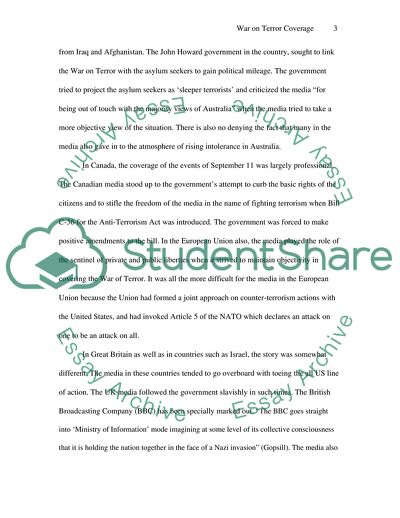Cite this document
(The Role of Global Media in War on Terror Case Study, n.d.)
The Role of Global Media in War on Terror Case Study. Retrieved from https://studentshare.org/media/1715193-how-has-the-war-on-terror-been-reported-in-the-global-media
The Role of Global Media in War on Terror Case Study. Retrieved from https://studentshare.org/media/1715193-how-has-the-war-on-terror-been-reported-in-the-global-media
(The Role of Global Media in War on Terror Case Study)
The Role of Global Media in War on Terror Case Study. https://studentshare.org/media/1715193-how-has-the-war-on-terror-been-reported-in-the-global-media.
The Role of Global Media in War on Terror Case Study. https://studentshare.org/media/1715193-how-has-the-war-on-terror-been-reported-in-the-global-media.
“The Role of Global Media in War on Terror Case Study”, n.d. https://studentshare.org/media/1715193-how-has-the-war-on-terror-been-reported-in-the-global-media.


